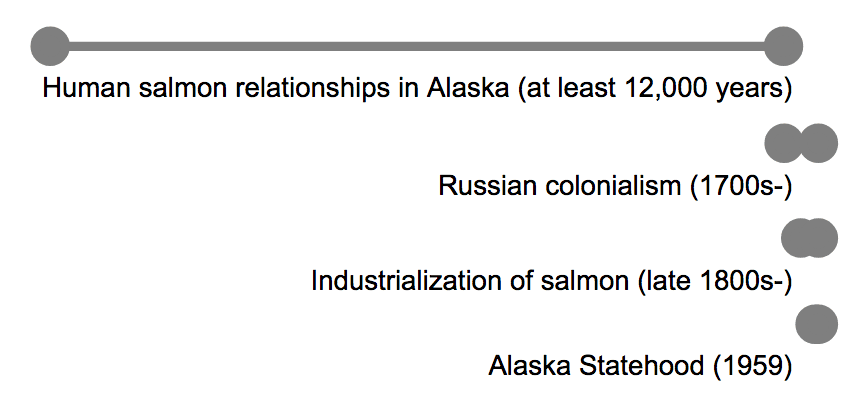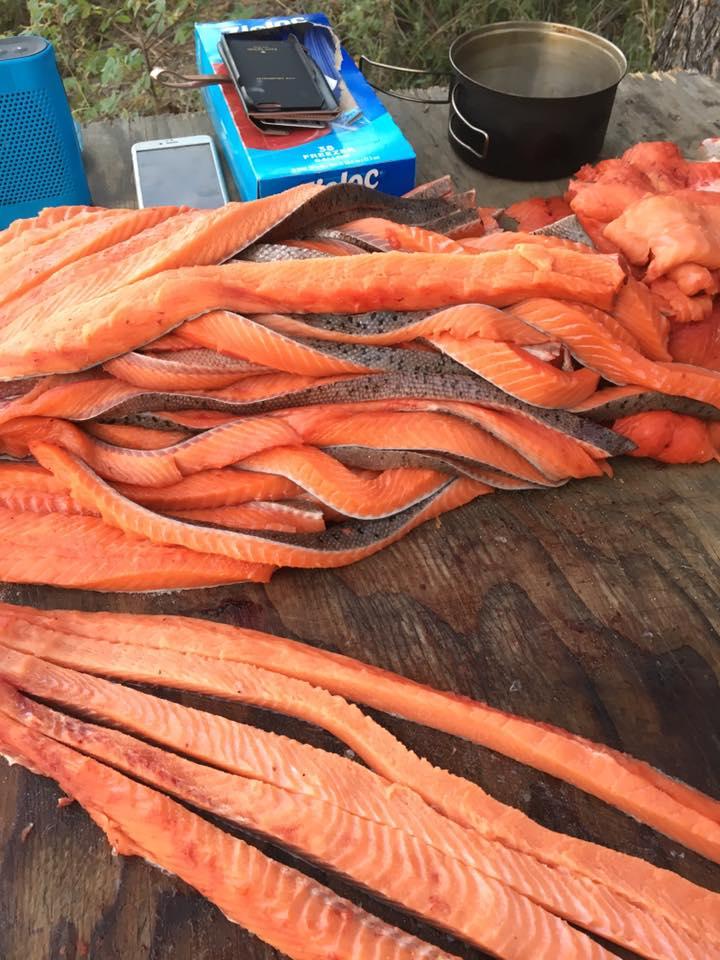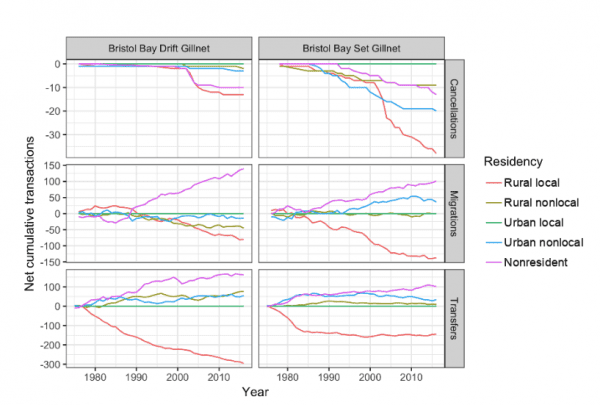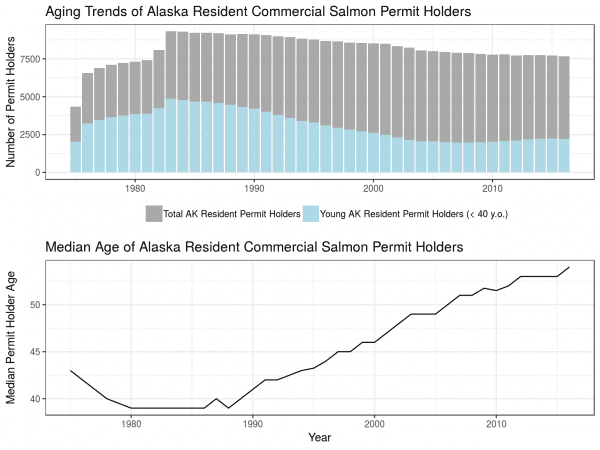In this state of knowledge synthesis of the social and cultural dimensions of salmon systems in Alaska, we explored three guiding topics:
-
Social and cultural values and relationships between people and salmon.
-
Trends in human populations and communities and uses of salmon.
-
Key threats to salmon-dependent communities.
In consultation with our regional advisors, we gathered over 800 published sources of data on people-salmon relationships. We performed an automated keyword analysis of all of this data and thematically coded a subset to draft regional summaries. One of our major goals of this part of the project was to increase the visibility of important sociocultural dimensions of salmon systems that are often overlooked. Our work challenges the assumption that we do not have this kind of data; we have literally thousands of sources of data to speak to these relationships. But, we recognize that these dimensions are not always well-documented in written form or available data sources. We also generated a list of repositories of archival data, oral histories, and Indigenous knowledge. We are creating final products that highlight these relationships and would especially like to acknowledge and express our appreciation for our advisors, who have directed us to make the outputs useful and accessible for diverse Alaska stakeholders.




